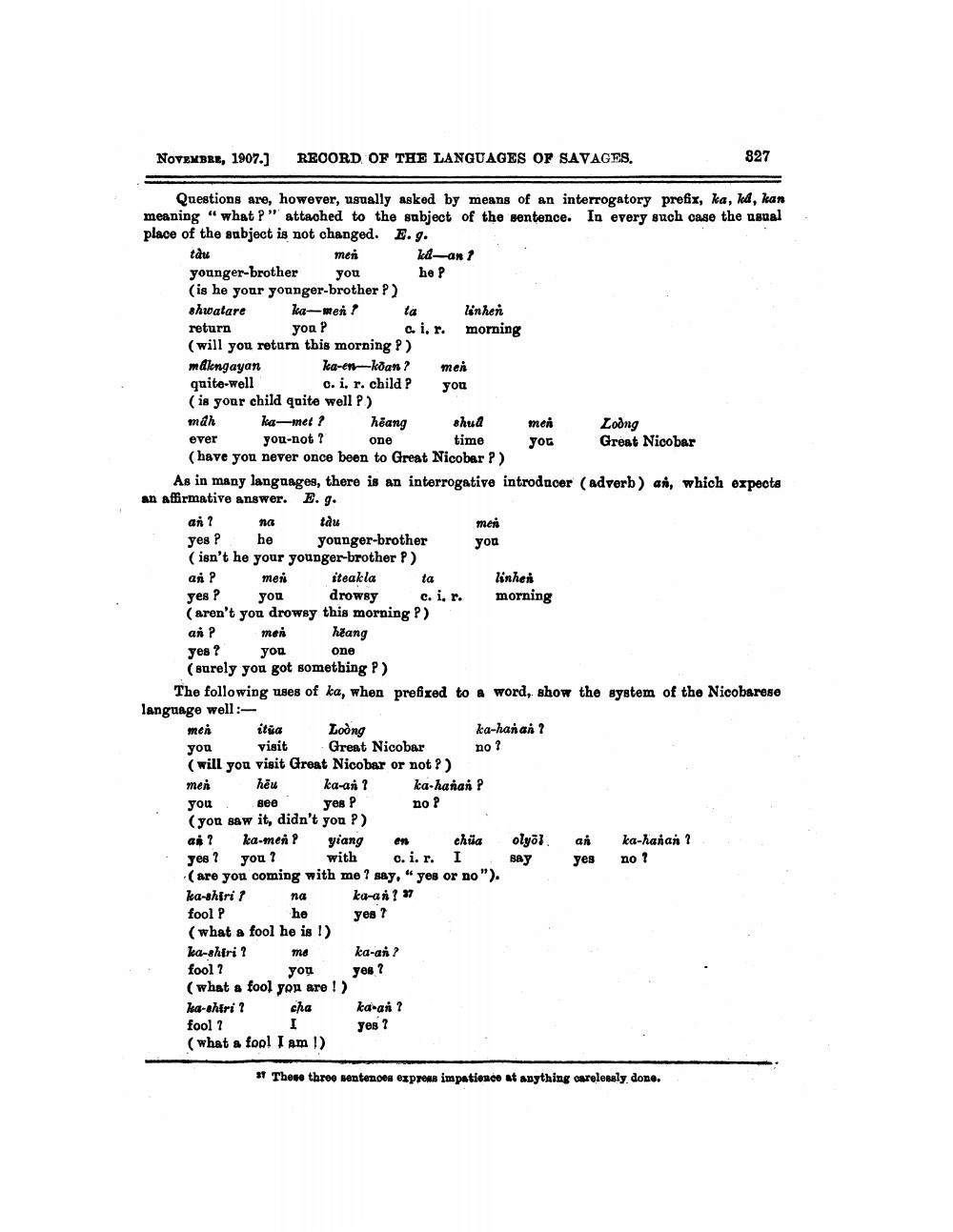________________
NOVEMBRE, 1907.] RECORD OF THE LANGUAGES OF SAVAGES.
Questions are, however, usually asked by means of an interrogatory prefix, ka, kd, kan meaning "what?" attached to the subject of the sentence. In every such case the usual place of the subject is not changed. E. g.
tàu
men
younger-brother you
(is he your younger-brother ?) shwatare ka-men? you ?
return
(will you return this morning?) makngayan ka-en-kōan?
quite-well
c. i. r. child?
(is your child quite well?) ka-met ? you-not?
mah
heang
shua
ever
one
time
(have you never once been to Great Nicobar ?)
ka-an ? he?
ta
linhen
c. i. r. morning
na
an? yes ?
he
younger-brother (isn't he your younger brother ?) an ? men iteakla yes ? you drowsy (aren't you drowsy this morning?) an ? heang yes?
men
you
one
(surely you got something ?)
ka-an? yes?
men
you
As in many languages, there is an interrogative introducer (adverb) an, which expects an affirmative answer. E. g.
tàu
ka-an?
yes ?
ta c. i. r.
men you
men
itua visit
Loong
you
Great Nicobar
(will you visit Great Nicobar or not?) men ka-an? see yes P
heu
you
chüa
(you saw it, didn't you ?) an? ka-men? yiang en yes? you? with c. i. r. I (are you coming with me? say, "yes or no "). ka-shiri? ka-an? 27 fool P yes?
na he (what a fool he is!) ka-shiri?
me fool? you (what a fool you are!) ka-shtri ? fool ?
cha I
(what a fool I am !)
men
you
linhen morning
The following uses of ka, when prefixed to a word, show the system of the Nicobarese language well:
ka-hanan? no ?
ka-hanan? no ?
Loong
Great Nicobar
olyōl Bay
απ yes
827
ka-hanan ? no ?
37 These three sentences express impatience at anything carelessly done.




